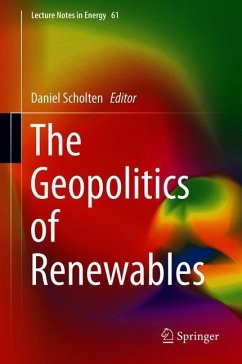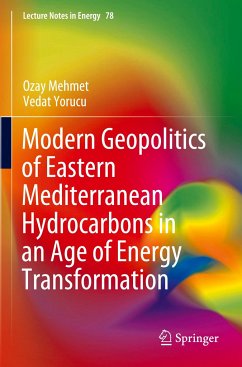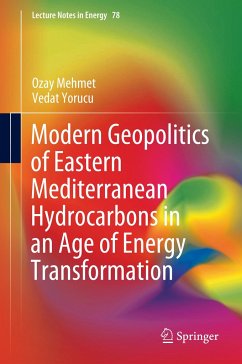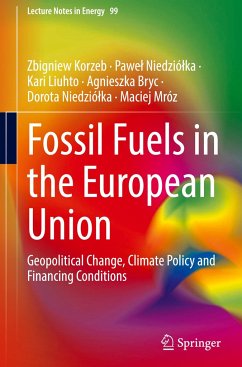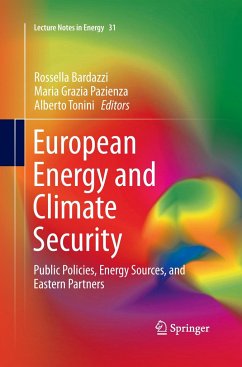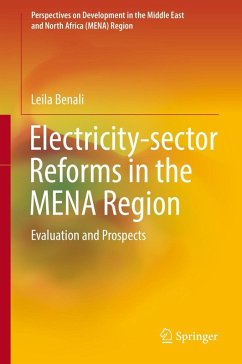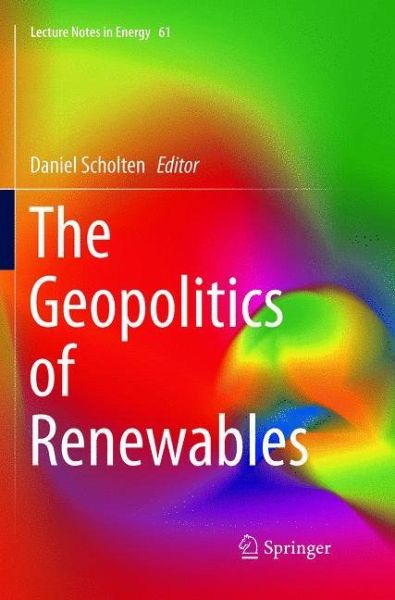
The Geopolitics of Renewables
Versandkostenfrei!
Versandfertig in 6-10 Tagen
151,99 €
inkl. MwSt.

PAYBACK Punkte
76 °P sammeln!
Renewables are a game changer for interstate energy relations. Their abundance and intermittency, possibilities for decentral generation and use of rare earth materials, and generally electric nature of transportation make them very different from fossil fuels. What do these geographic and technical characteristics of renewable energy systems imply for infrastructure topology and operations, business models, and energy markets? What are the consequences for the strategic realities and policy considerations of producer, consumer, and transit countries and energy-related patterns of cooperation ...
Renewables are a game changer for interstate energy relations. Their abundance and intermittency, possibilities for decentral generation and use of rare earth materials, and generally electric nature of transportation make them very different from fossil fuels. What do these geographic and technical characteristics of renewable energy systems imply for infrastructure topology and operations, business models, and energy markets? What are the consequences for the strategic realities and policy considerations of producer, consumer, and transit countries and energy-related patterns of cooperation and conflict between them? Who are the winners and losers?
The Geopolitics of Renewables is the first in-depth exploration of the implications for interstate energy relations of a transition towards renewable energy. Fifteen international scholars combine insights from several disciplines - international relations, geopolitics, energy security, renewable energytechnology, economics, sustainability transitions, and energy policy - to establish a comprehensive overview and understanding of the emerging energy game. Focus is on contemporary developments and how they may shape the coming decades on three levels of analysis:
· The emerging global energy game; winners and losers
· Regional and bilateral energy relations of established and rising powers
· Infrastructure developments and governance responses
The book is recommended for academics and policy makers. It offers a novel analytical framework that moves from geography and technology to economics and politics to investigate the geopolitical implications of renewable energy and provides practical illustrations and policy recommendations related to specific countries and regions such as the US, EU, China, India, OPEC, and Russia
The Geopolitics of Renewables is the first in-depth exploration of the implications for interstate energy relations of a transition towards renewable energy. Fifteen international scholars combine insights from several disciplines - international relations, geopolitics, energy security, renewable energytechnology, economics, sustainability transitions, and energy policy - to establish a comprehensive overview and understanding of the emerging energy game. Focus is on contemporary developments and how they may shape the coming decades on three levels of analysis:
· The emerging global energy game; winners and losers
· Regional and bilateral energy relations of established and rising powers
· Infrastructure developments and governance responses
The book is recommended for academics and policy makers. It offers a novel analytical framework that moves from geography and technology to economics and politics to investigate the geopolitical implications of renewable energy and provides practical illustrations and policy recommendations related to specific countries and regions such as the US, EU, China, India, OPEC, and Russia





